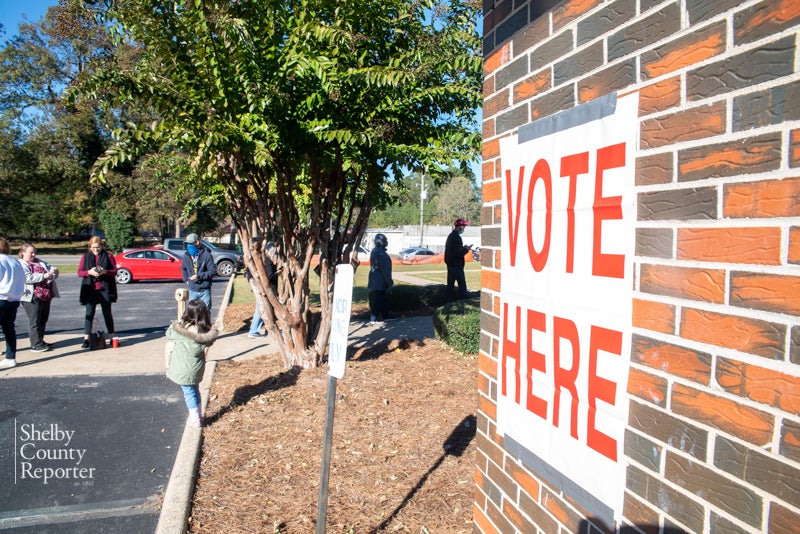State, county vote against Amendment 1 on Primary ballot
Published 6:54 am Wednesday, March 6, 2024

- Alabama voters voted against a proposed statewide amendment on Tuesday, March 5 in the primary election that would have expedited the legislative process by amending the isolation resolution process. (File)
|
Getting your Trinity Audio player ready...
|
By ALEC ETHEREDGE | Managing Editor
The state of Alabama turned down Amendment 1 on the Tuesday, March 5, primary ballot in a tight decision that split much of the state.
The amendment, which was proposed by Sen. Clyde Chambliss, R-Prattville, was set to amend Section 71.01 of the Alabama Constitution to give state legislature the ability to circumvent time consuming processes with the hope of expediting the passage of local laws.
In one of the tightest votes on primary day, 51.33 percent of voters were against the change to the constitution, while 48.67 percent voted in favor. That leveled out to 359,770 voters who voted against the amendment and 341,139 voting in favor of it.
Those numbers carried over in similar nature to the thoughts of Shelby County voters with 16,718, or 51.77 percent, voting against the amendment and 15,573 voting in favor of it, or 48.23 percent.
Ahead of the election, Rep. Corley Ellis, R-Columbiana, gave insight to the amendment, saying that currently, Section 71.01 of the state’s constitution establishes that the Senate must address the approval of budgets before they consider any other laws or bills.
“We’re statutorily required to do two things when we’re here in Montgomery in session and that’s pass both our budgets: the general fund budget and the education budget,” Ellis said. “And the state law for a long time, it said, you can’t do anything else until you do that.”
Ellis said the difficulty is that the general fund budget and the education budget can take a significant portion of time to pass, time that could be spent addressing other topics. In order to alleviate this issue, the Senate presented an amendment that might serve as a solution.
On Nov. 8, 2016, Alabamians voted to pass constitutional Amendment 14, which allowed the House and Senate to consider local laws before the budget was passed by introducing a BIR, a budget isolation resolution.
These resolutions give the legislature the freedom to act on local bills before passing the two budgets, so long as an additional vote is approved by the House and Senate of at least a three-fifths vote.
“(The budget isolation resolution) is what we use currently today, to be able to pass legislation while the budgets are working through the process,” Ellis said. “We do that, because the budget takes a while to get going and there’s other good legislation that we need to move.”
While budget isolation resolutions give the legislature the ability to address bills before the budgets are passed, a vote has to occur before addressing each individual law. This process creates a time constraint for the Legislature.
Ellis presented an example of how a morning in the Alabama House of Representatives may proceed.
“So, like today, we’re in session today, and we’ll pass 20 bills, so we have to have 20 separate budget isolation resolutions passed,” Ellis said. “You have to vote on it on every bill (and) so we’ll do that 20 times today.”
If Alabamians would have voted “yes” on statewide Amendment 1, the amendment would have allowed the legislature to circumvent the budget isolation resolutions and consider local laws or local constitutional amendments without additional voting each time.
With the “no” vote, the legislative process continues unchanged, with the passage of budget isolation requirements necessary when considering local laws.









